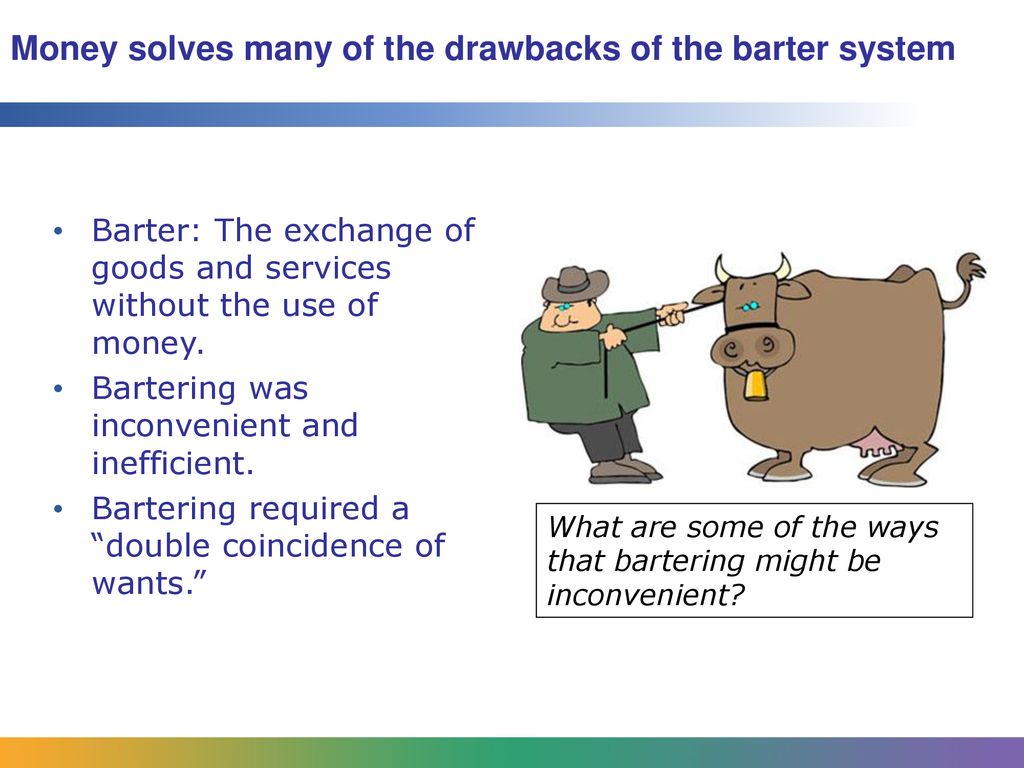The barter system is a form of trade in which goods or services are exchanged for other goods or services, without the use of money. While the barter system can be an effective way to exchange goods and services, it has several limitations. Money was developed as a way to solve these limitations and facilitate trade.
One of the main limitations of the barter system is the problem of double coincidence of wants. This refers to the fact that in order for a trade to take place, both parties must want what the other has to offer. For example, if a farmer wants to trade a bushel of apples for a new pair of shoes, but the shoemaker doesn't want apples, the trade cannot take place. This can be a significant obstacle to trade, as it can be difficult to find someone who wants what you have to offer and also has something that you want.
Money solves this problem by serving as a medium of exchange. Instead of directly exchanging goods or services, money can be used as a substitute for what is being traded. This allows people to trade indirectly, by using money to buy what they want from someone else. For example, the farmer can sell the apples for money, and then use the money to buy the shoes from the shoemaker. This eliminates the need for a double coincidence of wants, as the farmer and the shoemaker can trade indirectly through the use of money.
Another limitation of the barter system is the difficulty in establishing the value of goods and services. In a barter system, it can be difficult to determine how much one good or service is worth in terms of another. For example, how many apples should be traded for a pair of shoes? Money helps to solve this problem by providing a common denominator for the value of goods and services. Instead of trying to determine the value of goods in terms of each other, money provides a standard measure of value that can be used to compare the value of different goods and services. This makes it easier for people to determine the value of what they are trading and facilitates trade.
Finally, the barter system can be inefficient because it requires a direct exchange of goods or services. This can be time-consuming and may not be practical in some cases. Money solves this problem by allowing people to trade indirectly, without the need for a direct exchange of goods or services. This makes trade more efficient and convenient, as people can buy and sell what they want without having to find someone who wants what they have to offer.
In conclusion, money solves the problems of the barter system by serving as a medium of exchange, providing a common denominator for the value of goods and services, and making trade more efficient and convenient. By eliminating the need for a double coincidence of wants and making it easier to determine the value of goods and services, money facilitates trade and helps to drive economic growth and development.








